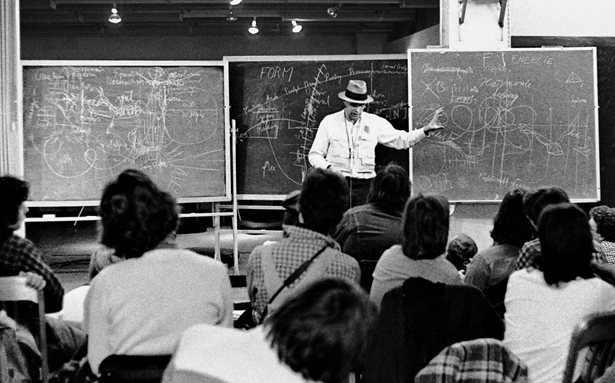1st July – Love and Belonging in the Educational Realm – Session Notes

1st July – Love and Belonging in the Educational Realm – Session Notes
The different ways we get information and feedback about our teaching
Question 1:
What does it mean to belong? 10:24
Individual Notes
Groups discussions and 1:1 tutorials — meaningful conversations
Being good enough to get on the course — gatekeeping
The power of saying no — this is very empowering
Not defending the boundaries of ones project — more fluid (swap projects?)
The power to edit ones environment (like a word document)
Group Notes
Be noticed be heard and be seen — dress the same , etc.
How do you show that student that we do see them?
How would the students draw themselves in a class hierarchy?
Are the students entitled? You don’t just liberate the oppressed but also the oppressor
The chat box is good as a back channel — good for different types of people
Could people make more dynamic and less stable connections? Smooth space… same with project ownership
Question 2:
What securities are those structures protecting? 10:55
How do we extend a sense of love and care?
How can we extend a sense of love and care when we feel unstable ourselves as workers?
Can we make instability a virtue? Is there some creativity to be taken from that? Can it reveal something to us? Shows us that stability never really existed.
We see stability as normal but for the vast majority of people instability is normal.
The new normal when we all feel self conscious and ignore previous support structures
Not just trying to replicate the classroom environment. It is glitchy and edgy — maybe this is more like what student’s lives are like.
Students put a lot of effort into the way they look, so maybe it’s quite liberating —less stressful—to be in a virtual environment where you don’t have to worry.
Does online learning offer more control? The students probably prefer this, not only because they don’t have to travel (both physical and emotional)
There is a buffer in the virtual environment and students can remove themselves from a situation if needed. One of my students said it was good that if they feel uncomfortable in a certain situation they can just claim they have connection issues (or turn their camera off — good to have gradients of engagement) and get out of the environment quickly — this is not possible in IRL discussions.
Only worry about the people who don’t have imposter syndrome!!!
Oven Trays – Good sound!!!
Teacher Evaluation 12:22
Teacher Evaluation study on moodle/Looking at evaluation reports from students/Peer review
Question 3:
What are the potential issues in Stephanie’s teaching practice?
She thinks that teaching takes second place to her other work
She ignores student concerns because she thinks giving out information is spoon feeding
Blaming students for her own problems
Not implementing her ‘innovative’ approach correctly
More like a review than marking—assessment is the wrong term
The teaching is very one way and not relational—she’s not much of facilitator
She doesn’t recognise different types of students in a group
Qualitative rather than quantitive approach
She dismisses the essential student feedback and makes generalisations
Lack of respect for the students
She can’t delegate with colleagues
Defensive reaction is in there with all of us when faced with negative feedback. It is difficult to take feedback because it challenges our walls and stability.
Not willing to share knowledge with colleagues—we have different interesting with different context
Do we presume she has an overly emotional reaction because the male writer gave her a female name? Should the gender be left out?
Develop a better system for observations, that engenders discussion between colleagues rather than ‘reports’?
Biggs & Tang – being a reflexive practitioner
Peer observation works best when its informal/peer review with students? ‘ways of being critical’ exploratory workshop!
All parties seem to have issues with being critical
Student Stories
2a.
What does the student want me to hear?
Kimmy doesn’t feel ‘seen’ in a workshop situation, she doesn’t get recognition
2b.
Seeing different parts of the university could be an illusion, needs to be a structure to support transparency. Can be positive and negative.
He keeps thinking everything would be better somewhere else? How can we show students this is not the case?
Would students give different feedback if they felt very seen?
